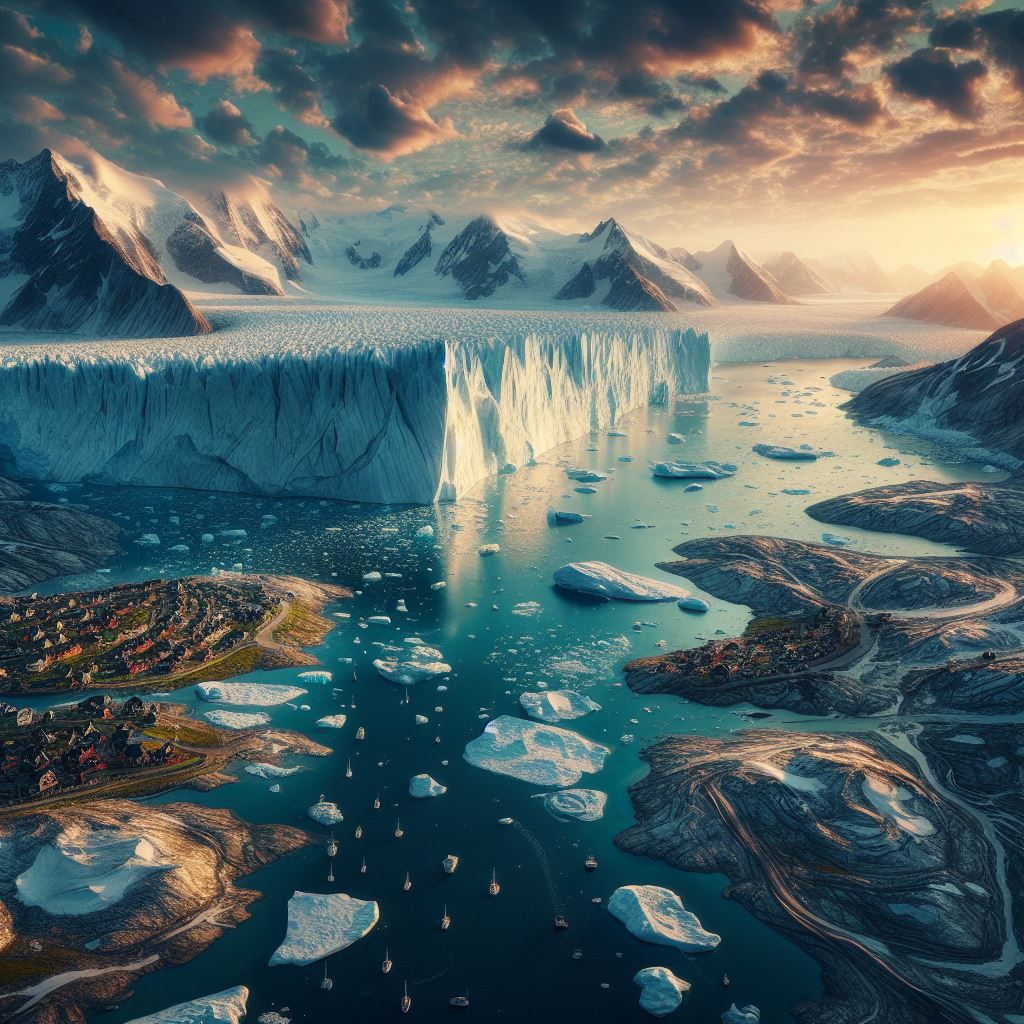The Greenland Ice Sheet, one of only two remaining ice sheets globally, covering about 80% of Greenland’s landmass, plays a crucial role in regulating sea levels.
The first thorough assessment of the Greenland Ice Sheet’s area loss is presented by scientists in a ground-breaking study that was published in the journal Nature on Wednesday. It shows an astounding 5,091 square kilometres (1930 square miles) of shrinkage between 1985 and 2022.
This revelation, derived from over 200,000 satellite and AI observations of glacier positions, sheds light on the significant impact of glacial retreat on the ice sheet’s mass balance, challenging previous estimates that may have undercounted losses by up to 20%.
The 1,034 gigatonnes (1.034 trillion kg) of ice lost, primarily through glacial retreat and calving – the process where ice chunks break off from a glacier – paints a vivid picture of the ice sheet’s rapid transformation. The lost area, equivalent to the size of the island nation of Trinidad and Tobago, underscores the urgency of understanding and addressing the consequences of climate change in the Arctic.
Lead author of the study, Alex Gardner, an earth scientist at NASA’s Jet Propulsion Laboratory, emphasized the significance of this research, stating, “In Greenland, we have these areas around the edges where everything is just kind of retreating and crumbling. The previous methods weren’t really that great at measuring that change in the ice sheet. But the change is huge.”
The Greenland Ice Sheet, one of only two remaining ice sheets globally, covering about 80% of Greenland’s landmass, plays a crucial role in regulating sea levels. If fully melted, it would contribute to a staggering 7.4 meters (23 feet) rise in global sea levels, posing severe threats to coastal regions around the world.
With climate change disproportionately affecting the Arctic at a rate four times faster than the rest of the planet, scientists warn that the melting of the Greenland Ice Sheet is inevitable. Even with the warming that has already occurred, it is projected to raise sea levels by at least 27 cm (10.6 inches). However, the new estimates of ice loss due to glacial retreat, while having a limited impact on global sea levels, are predicted to have significant consequences for ocean circulation.
Scientists suggest that the additional freshwater introduced into the salty ocean could have profound effects on coastal currents around Greenland, potentially contributing to the weakening of the Atlantic Meridional Overturning Circulation (AMOC). The AMOC is a critical component of global ocean circulation, moving water from north to south and playing a pivotal role in regulating climate and bringing warmth to Europe.
While the direct impact on sea levels may be relatively small, the study underscores the complex and far-reaching consequences of climate change on Earth’s systems. The potential disruption of the AMOC could have cascading effects on weather patterns, marine ecosystems, and global climate stability, making the study’s findings crucial for policymakers and researchers alike.
As the world grapples with the urgency of mitigating climate change, this study serves as a stark reminder of the interconnectedness of Earth’s systems and the pressing need for decisive action to address the ongoing environmental crisis. The fate of the Greenland Ice Sheet is not only a concern for the Arctic but has far-reaching implications for the entire planet.
